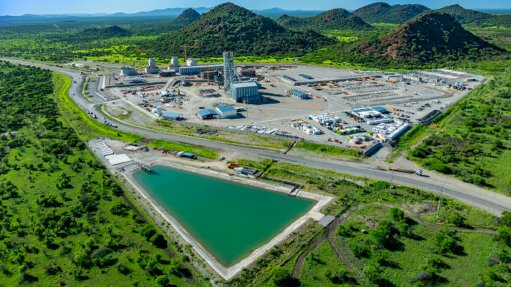Unlamented dictator
Owing to the mediation role that South Africa has played in conflict-prone Burundi, thus guaranteeing the East African country a spot on our media agenda for many years, very few news-consuming citizens of Mzansi would need to be told who Pierre Nkurunziza was.
The 55-year-old breathed his last in June, after having successfully choreographed an electoral process that propelled a former army general he had handpicked as his successor to the Presidency.
‘Nkurunziza’ means ‘good news’ in one of Burundi’s vernacular languages. But, by many accounts, his decade-and-a-half-long tenure as the number one citizen was all but a cause for celebration. He brooked no opposition and rode roughshod over the people he was supposed to lead to a better life. And, on receiving news of his demise, many must have felt like legendary American lawyer Clarence Darrow, who quipped in 1922: “I have never killed anyone, but I have read some obituary notices with great satisfaction.”
A member of Burundi’s long-oppressed Hutu ethnic group, Nkurunziza became President in 2005. He performed relatively well during the early years of his Presidency, but it was all downhill from his second term, with corruption becoming endemic and extrajudicial killings the new norm.
Then, in 2015, the football-loving self-styled pastor announced he would run for President a third time, despite a two-term cap imposed by the Constitution. An attempted coup by disgruntled soldiers on May 13, 2015, was put down but prompted a massive crackdown against protesting citizens, journalists and the political opposition. By some accounts, by 2018, his government had killed 1 700.
Those who follow developments in the rest of Africa will recall that, on May 12, his government expelled the World Health Organisation expert team supporting Burundi’s response to the Covid-19 pandemic. No reasons were given but speculation was rife the team had been deemed guilty of “unacceptable interference in [government’s] management of the coronavirus”.
The consequences of that decision were deadly – literally. Within a week of the issuance of the expulsion order, a medical doctor, speaking on condition of anonymity, reported the deaths of six patients, “presenting all the symptoms of the coronavirus”.
Those who thought the ascension to power of Evariste Ndayishimiye, Nkurunziza’s anointed successor, would see Burundi change tack with respect to its response to Covid-19 had a rude awaking when he said while on the campaign trail: “Do not be afraid. God loves Burundi, and if people have tested positive [for the coronavirus], it is so that God may manifest his power in Burundi.”
That’s the unlamented departed dictator’s legacy.
Regrettably, Africa is teeming with many, many Nkurunzizas. In Burundi’s Great Lakes Region neighbourhood, there is Yoweri Museveni in Uganda, who has been lording it over his people since shooting his way to power in 1986 and has been endorsed by the ruling party as its candidate for the next Presidential election, in 2021.
We also have characters like Paul Biya, of Cameroon, who has been in power since 1982 and whose re-election was described by US publication Foreign Policy as a “master class in fake democracy”. Besides hanging on to power through devious means, his sins include favouring citizens in French-speaking regions at the expense of their English-speaking compatriots.
Other African dictators include Emmerson Mnangagwa in Zimbabwe, Teodoro Obiang Nguema Mbasogo in Equatorial Guinea, Idriss Deby in Chad, Denis Sassou Nguesso in the Republic of Congo, Faustin Archange Toudera in the Central African Republic – and many more.
Clearly, we cannot get any good news from the current crop of leaders.
Article Enquiry
Email Article
Save Article
Feedback
To advertise email advertising@creamermedia.co.za or click here
Press Office
Announcements
What's On
Subscribe to improve your user experience...
Option 1 (equivalent of R125 a month):
Receive a weekly copy of Creamer Media's Engineering News & Mining Weekly magazine
(print copy for those in South Africa and e-magazine for those outside of South Africa)
Receive daily email newsletters
Access to full search results
Access archive of magazine back copies
Access to Projects in Progress
Access to ONE Research Report of your choice in PDF format
Option 2 (equivalent of R375 a month):
All benefits from Option 1
PLUS
Access to Creamer Media's Research Channel Africa for ALL Research Reports, in PDF format, on various industrial and mining sectors
including Electricity; Water; Energy Transition; Hydrogen; Roads, Rail and Ports; Coal; Gold; Platinum; Battery Metals; etc.
Already a subscriber?
Forgotten your password?
Receive weekly copy of Creamer Media's Engineering News & Mining Weekly magazine (print copy for those in South Africa and e-magazine for those outside of South Africa)
➕
Recieve daily email newsletters
➕
Access to full search results
➕
Access archive of magazine back copies
➕
Access to Projects in Progress
➕
Access to ONE Research Report of your choice in PDF format
RESEARCH CHANNEL AFRICA
R4500 (equivalent of R375 a month)
SUBSCRIBEAll benefits from Option 1
➕
Access to Creamer Media's Research Channel Africa for ALL Research Reports on various industrial and mining sectors, in PDF format, including on:
Electricity
➕
Water
➕
Energy Transition
➕
Hydrogen
➕
Roads, Rail and Ports
➕
Coal
➕
Gold
➕
Platinum
➕
Battery Metals
➕
etc.
Receive all benefits from Option 1 or Option 2 delivered to numerous people at your company
➕
Multiple User names and Passwords for simultaneous log-ins
➕
Intranet integration access to all in your organisation

















